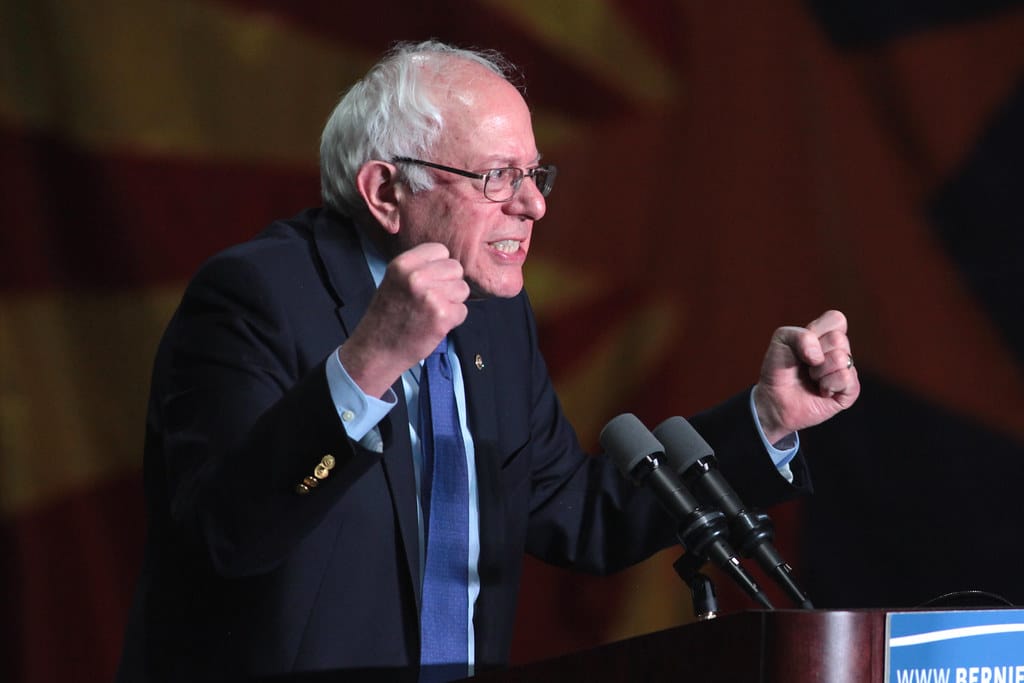Bernie is at it again folks. Recently, the Democratic senator proposed that the government confiscate all the money that a person makes above $999 million. This came about from an interview with Chris Wallace discussing his new book, It’s OK to Be Angry About Capitalism.
This is nothing new for Bernie, as he is known for his criticisms about billionaires. In fact, he has called for abolishing the very concept of billionaires in the past. He argued on the campaign trail in 2019, “There should be no billionaires. We are going to tax their extreme wealth and invest in working people.”
The idea of taxation is conceptionally immoral. The idea of any group of people, including the government, coming along and saying, “Give us your money or we are going to throw you in jail or inflict violence on you,” is coercion. Yet, that is what the government engages in.
Apart from its immorality, taxation is a tool used to discourage production.
In his classic book, Economics in One Lesson, Henry Hazlitt demonstrates this in an extraordinary manner. If a corporation is allowed to lose every cent of the dollar it loses while only able to keep a portion of the dollar it gains, it makes it harder to adequately offset its years of losses against the years of gain. This restricts its ability to expand. It also deters people from entering the business. Hazlitt wrote:
“When a corporation loses a hundred cents of every dollar it loses, and is permitted to keep only fifty-two cents of every dollar it gains, and when it cannot adequately offset its years of losses against its years of gains, its policies are affected. It does not expand its operations, or it expands only those attended with a minimum of risk. People who recognize this situation are deterred from starting new enterprises.”
This leads to better-equipped factories and product improvements to come about much slower than they otherwise would.
Hazlitt also mentions that if someone was taxed at 50, 60, or 70 percent, then they will begin to ask themselves why they ought to work six-nine months of the year for the government and six-three months for themselves and their families. They’ll conclude that taking risks with their capital is foolish.
An article published by the Boston Review examined the potential effects of a wealth tax. To the surprise of no one, their findings are that its implementation would hurt the economy.
They concluded that a wealth tax could drive billionaires to other countries and denounce their United States citizenship. This way, they can enter a country that allows them to maintain more of their money that they have earned. While Sanders and Senator Elizabeth Warren have suggested an exit tax, it would be inefficient if they will earn more money elsewhere with the exit tax then in the United States.
Furthermore, they could avoid the exit tax is they were to lower “the assessed value of their assets for the single year in which they leave.”
This and other aspects are what would cause “the overall U.S. economy will be weaker, the country as a whole will be poorer, and Americans will have less access to innovative companies and high-paying jobs.”
A wealth tax on billionaires would also have unintended consequences on workers as well.
This policy would leave wealthy businesses with less money to invest, so their employees would have less capital to work with. This would result in lower wages for the workers than otherwise. This is why the Tax Policy Center estimates a wealth tax would cause 60% of the burden to fall on workers.
Unfortunately, fifteen European countries did not understand this and implemented their own wealth taxes. However, almost all of them abolished it because it was such a failure.
When France introduced their wealth tax between 1988 to 2006, about €200 billion was lost in capital flight every year. It has been estimated that the tax reduced GDP growth by 0.2 percent per annum while shifting the tax burden from wealthy taxpayers leaving France onto others.
Sweden, one of Bernie’s favorite countries, abolished their wealth tax in 2016 after many billionaires avoided it and the policy generated almost no economic growth in the country. They saw abolishing the tax as a step towards boosting low levels of investment, encourage entreprenurial activity, and increase employment.
Some will protest the claims made above by claiming that under President Dwight Eisenhower in the 1950s, the rich were taxed at 91% and the economy still had good economic growth. This has been spread by progressives like self-described Democratic Socialist Alexandria Ocasio-Cortez.
What AOC and others get wrong is that the 91% was their marginal tax rate. Their effective tax rate was much lower at just 46%, due to the use of deductions and other legal techniques to reduce one’s overall tax burden.
To our country’s credit, burdensome and prosperity destroying policies like a wealth tax have not gained mass popularity in the United States like in Europe. The intrusive socialism that Bernie Sanders stumps for was rejected by Democratic voters in 2016 and 2020, proving that Americans may not be as angry about capitalism as Bernie hopes.







